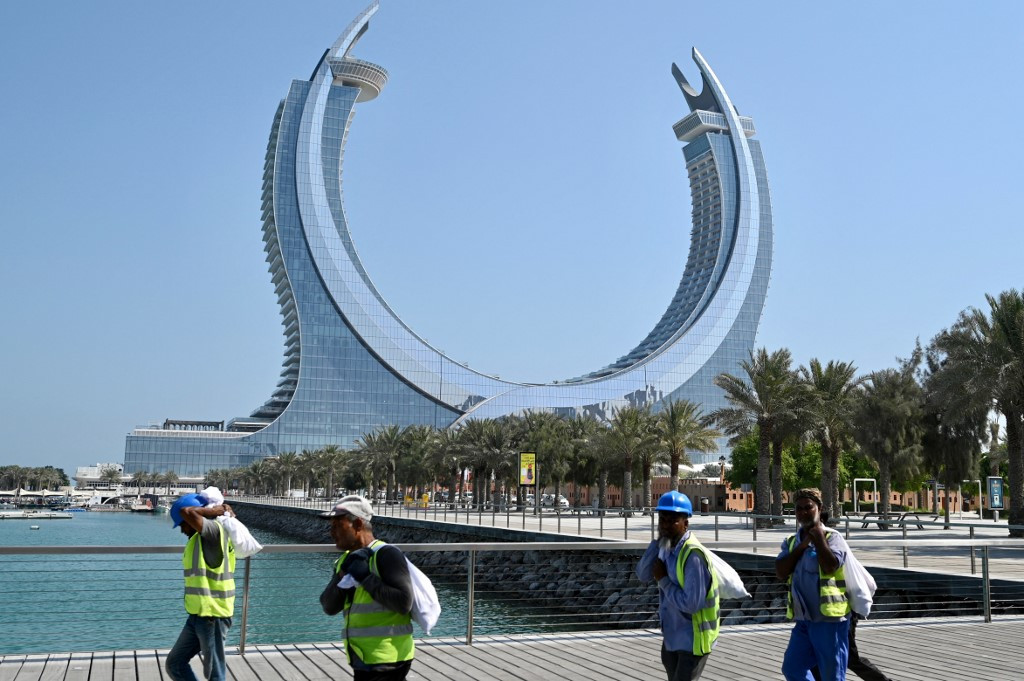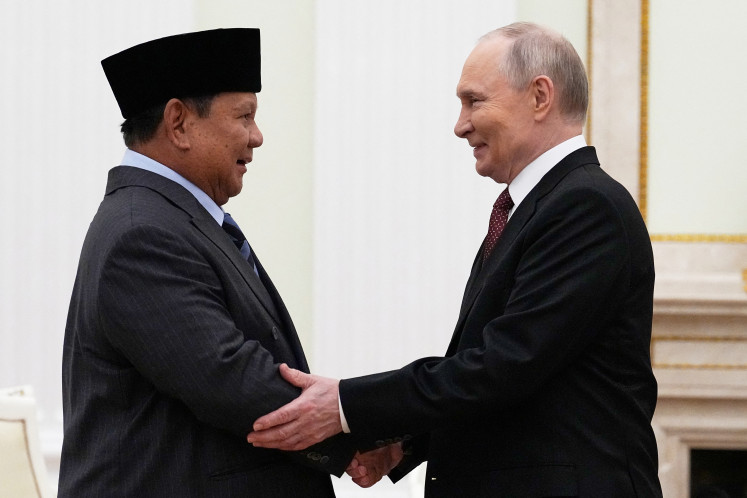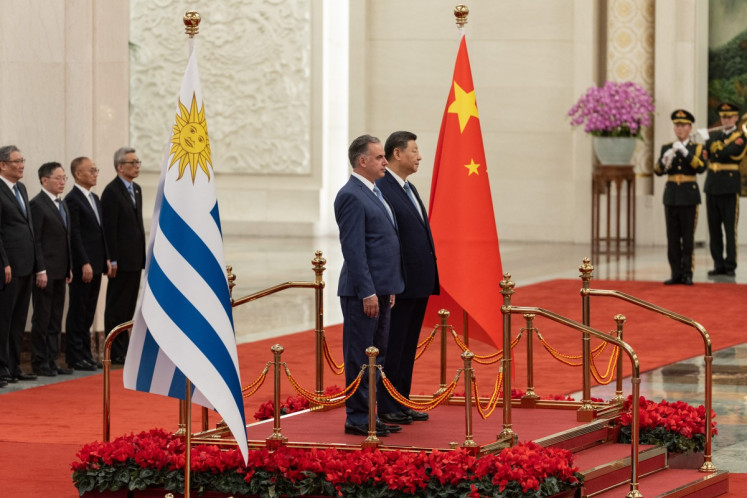Popular Reads
Top Results
Can't find what you're looking for?
View all search resultsPopular Reads
Top Results
Can't find what you're looking for?
View all search resultsWorld Cup dream
It is not an exaggeration to call the World Cup an ideal pause for those in conflict to lay down arms and return to the negotiating table.
Change text size
Gift Premium Articles
to Anyone
T
he FIFA World Cup, which kicks off today, will be special for everyone, not just soccer fans, across the globe. The soccer extravaganza comes on the heels of the COVID-19 pandemic, which left many nations reeling due to its devastating impacts. It will be the first World Cup to be held on Arabian turf, if not in the Muslim world, which is why it runs from November-December rather than as usual in the northern hemisphere’s summer.
For what it is worth, we should celebrate the arrival of the quadrennial tournament featuring the crème de la crème of soccer. Having seen the contenders fight tooth and nail, not only against their rivals but also the threat of COVID-19 infection during the qualification rounds that began when the pandemic was still raging, we can be sure of an action-packed competition throughout the next month.
Billions of people, both in the Qatari stadiums and at home watching on TV screens, will bear witness as to whether Neymar Jr-led Brazil will break the record of lifting the trophy for the sixth time as some pundits have predicted. They will also wonder if either Cristiano Ronaldo or Lionel Messi will finally add a World Cup gold medal to their unrivaled collection of Ballon d’Or awards, or perhaps host Qatar, whose right to host the event has become a source of controversy, will progress to the knock-out stage.
For the coming month, the world will switch its attention from the protracted war in Ukraine or simmering tensions in the South China Sea to the latest developments of the teams competing in Qatar. Cafes in many cities across the globe, including Indonesia, are offering live shows for soccer fans to cheer on, and if necessary cry for, their favorite teams.
It is not an exaggeration to call the World Cup an ideal pause for those in conflict to lay down arms and return to the negotiating table. In fact, sports, including soccer, have from the beginning promoted peace, friendship and solidarity. The fact that FIFA has banned Russia from the World Cup due to its invasion of Ukraine simply testifies to its commitment to peace. (For safety reasons, FIFA banned war-torn Iraq from hosting international matches for almost three decades until January of this year).
As we wish all the national teams competing in the World Cup luck, the event should inspire Indonesia to devote greater efforts to realizing its dream of qualifying either as a host or one of the finalists. The former requires excellent lobbying skills and financial resources while the latter high-level performances.
The FIFA Under-20 finals Indonesia will host in May-June next year can mark a start to the long and winding road we have to go through to bring the World Cup to our home. If we can be trusted in small things, we deserve faith in bigger matters.











